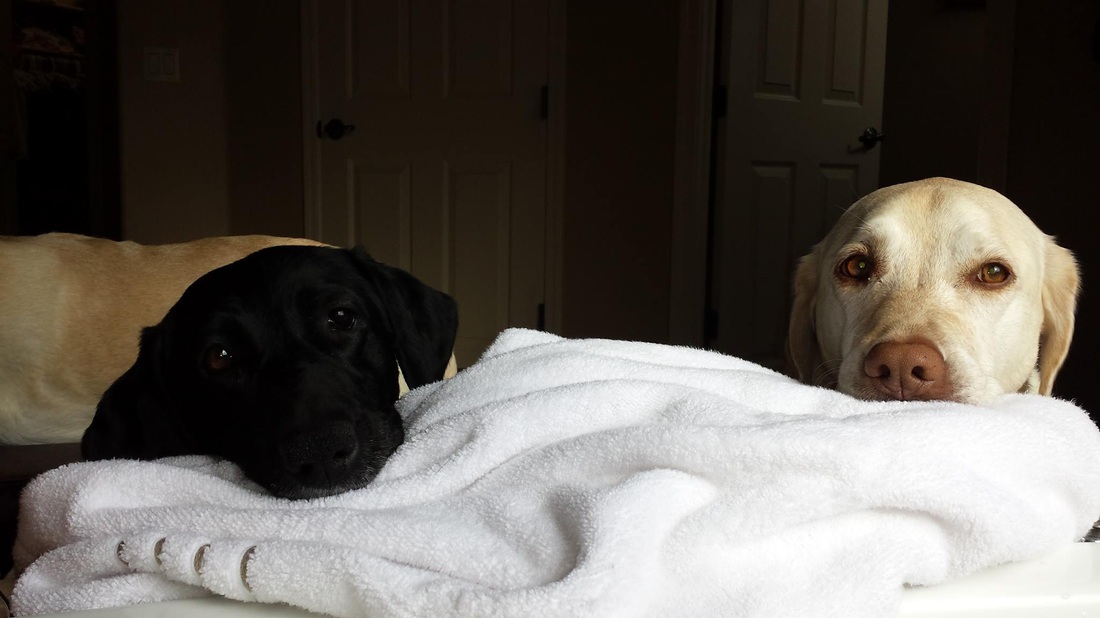|
I am learning communication lessons everyday, still, Despite having written two books on the subject of communication and relationships, I learned another lesson today. When communicating about relationships, taking shortcuts is not a good idea.
Let me back up. (beep-beep-beep) Dave and I just began fostering Labrador Retrievers through the Desert Labrador Retriever Rescue group. Great organization that does great things for rescue dogs. We picked up our first foster pup last week. The routine is supposed to go like this: foster the dog, post pics on the website, take in phone calls and emails from approved adopters willing to adopt the dog, then make an informed decision about the best forever home for the rescue pup. Within hours of posting our sweet Casey (the adorable Black Lab above) on the website, we had several possible suitors. When we talked to the first family, they agreed to drive down to Tucson from their home 2 hours away to see her. If a match is made, they are allowed to take her home. While the human family made it down, they decided to leave their dachshund at home. They said he got car sick. "No matter", we were assured. "He gets along with everyone." Yes, I had a couple of ding-ding bells go off that should have been warning signs for me. BUT..... the family got along great with Casey when they came to see her. They hugged on her, loved on her, and ended up taking her home. Unfortunately, the dachshund had other ideas about having a newcomer enter his home. While the two did just fine out in the yard, the dachshund had a lot to say to Casey when they tried to come in the house. Within hours, the couple had called us, saying it just wasn't going to work out, at which time we immediately jumped in the car to go retrieve sweet Casey. What is the lesson, you might ask? Don't take shortcuts when it comes to building relationships and in any important communication. If we hear something that sends up red flags (I can't bring my dog to meet a potential new dog), don't take a shortcut. I should have insisted and been very clear: the adoption can take place when all members of the family are present, so we can make sure it is a good fit. Instead, we were hopeful. Hope is a great thing, don't get me wrong, but it is no substitute for putting in the right work. Jane Pollock, a great educational author, once said, "We need to take the hope out of teaching." What? No, no, no, this cannot be. Hope is sometimes all we have. What she meant, however, is that we need to back up hope with putting good stuff in. For example, instead of saying, "I hope my students do well on the test this Friday", we should know how they will do based on the formative work we have done with them up to that point. The same holds true with fostering. While I can't make ensure every little detail, I can take the hope out of fostering---not just saying, "I hope the family dog gets along with the rescue pup" but putting in the footwork to ensure the best results possible occur. From now on in the foster world and in communication in general, I vow to not take shortcuts and not just "hope" for good things to happen. Just for today, perhaps we should be clear, consistent and persistent to ensure the best results possible in all we do! Happy Communicating!! Shelly
0 Comments
Leave a Reply. |
Shelly ArnesonCategories |



 RSS Feed
RSS Feed